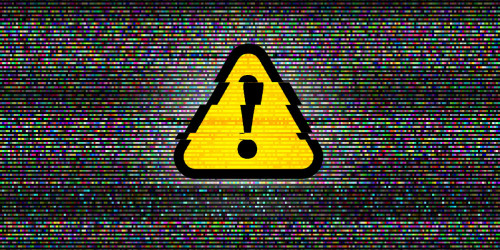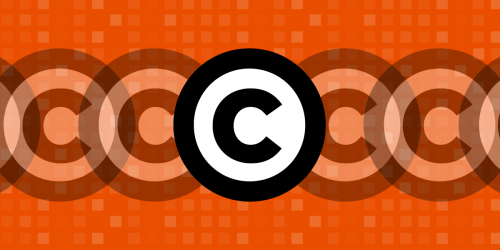Today, we delivered a petition to the U.S. Copyright Office to keep copyright’s safe harbors safe. We asked the Copyright Office to remove a bureaucratic requirement that could cause websites and Internet services to lose protection under the Digital Millennium Copyright Act (DMCA). And we asked them to help keep Congress from replacing the DMCA safe harbor with a mandatory filtering law. Internet users from all over the U.S. and beyond added their voices to our petition.
Under current law, the owners of websites and online services can be protected from monetary liability when their users are accused of infringing copyright through the DMCA “safe harbors.” In order to take advantage of these safe harbors, owners must meet many requirements, including participating in the notorious notice-and-takedown procedure for allegedly infringing content. They also must register an agent—someone who can respond to takedown requests—with the Copyright Office.
The DMCA is far from perfect, but provisions like the safe harbor allow websites and other intermediaries that host third-party material to thrive and grow without the constant threat of massive copyright penalties. Without safe harbors, small Internet businesses could face bankruptcy over the infringing activities of just a few users.
Now, a lot of those small sites risk losing their safe harbor protections. That’s because of the Copyright Office’s rules for registering agents. Those registrations used to be valid as long as the information was accurate. Under the Copyright Office’s new rules, website owners must renew their registrations every three years or risk losing safe harbor protections. That means that websites can risk expensive lawsuits for nothing more than forgetting to file a form. As we’ve written before, because the safe harbor already requires websites to submit and post accurate contact information for infringement complaints, there’s no good reason for agent registrations to expire. We’re also afraid that it will disproportionately affect small businesses, nonprofits, and hobbyists, who are least able to have a cadre of lawyers at the ready to meet bureaucratic requirements.
Many website owners have signed up under the Copyright Office’s new agent registration system, which is designed to send reminder emails when the three-year registrations are set to expire. While the new registration system is a vast improvement over the old paper filing system, the expiration requirement is unnecessary and dangerous.
We explained these problems in our petition, and we also explained how the DMCA faces even greater threats. If certain major media and entertainment companies get their way, it will become much more difficult for websites of any size to earn their safe harbor status. That’s because those companies’ lobbyists are pushing for a system where platforms would be required to use computerized filters to check user-uploaded material for potential copyright infringement.
Requiring filters as a condition of safe harbor protections would make it much more difficult for smaller web platforms to get off the ground. Automated filtering technology is expensive—and not very good. Even when big companies use them, they’re extremely error-prone, causing lots of lawful speech to be blocked or removed. A filtering mandate would threaten smaller websites’ ability to host user content at all, cementing the dominance of today’s Internet giants.
If you run a website or online service that stores material posted by users, make sure that you comply with the DMCA’s requirements. Register a DMCA agent through the Copyright Office’s online system, post the same information on your website, and keep it up to date. Meanwhile, we’ll keep telling the Copyright Office, and Congress, to keep the safe harbors safe.







